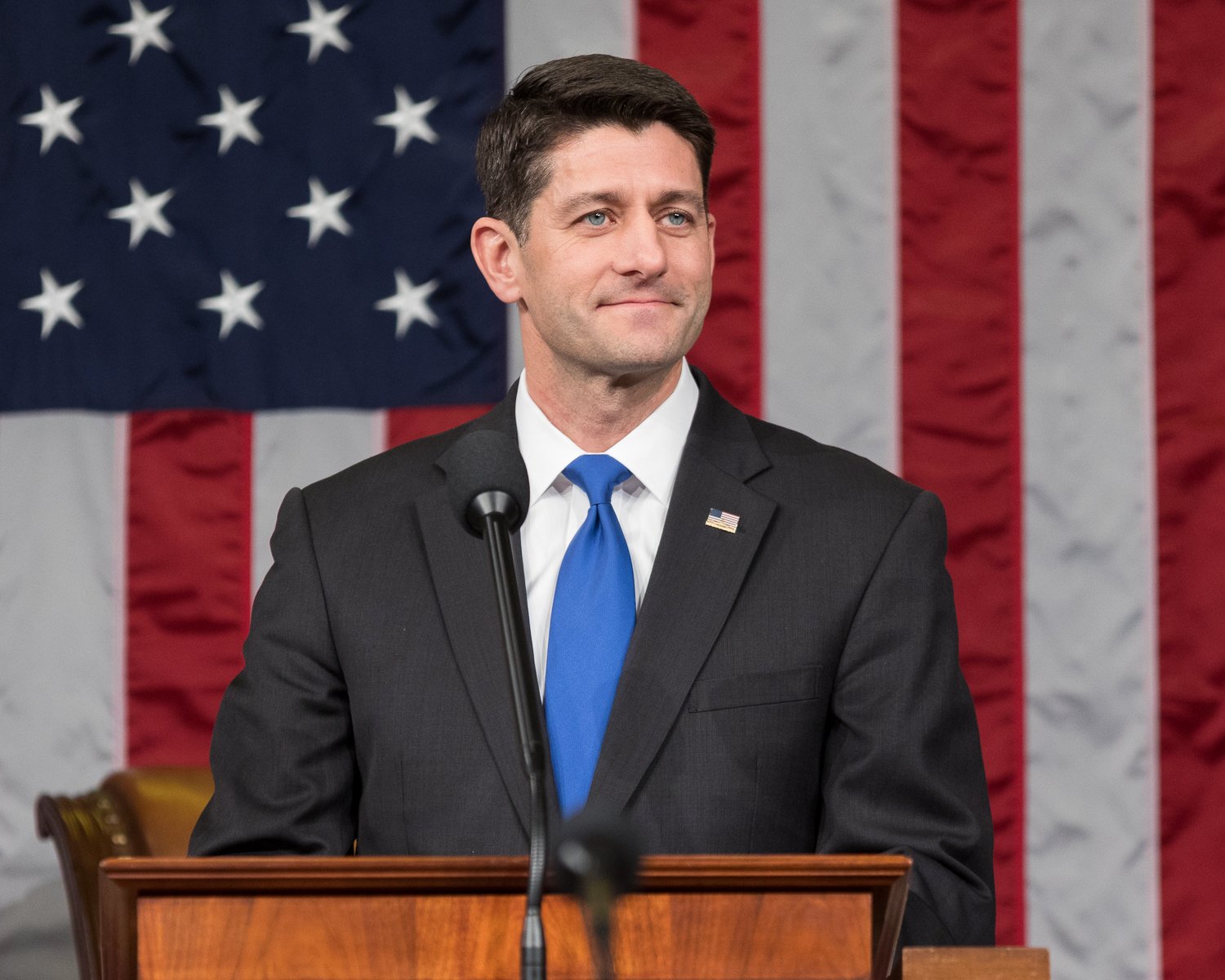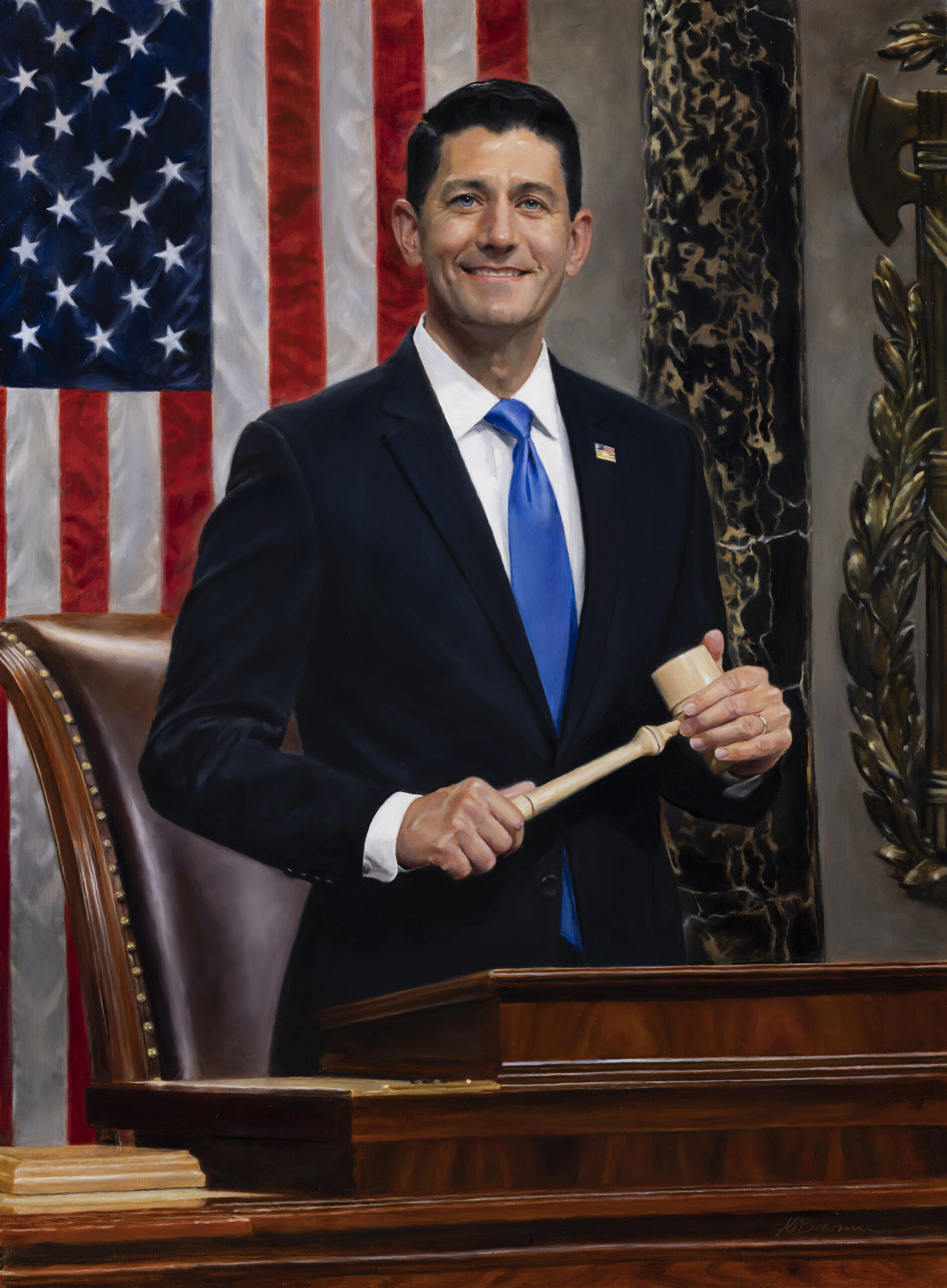Is it possible for a politician to hold significant power and yet remain an enigma to many? Paul Ryan, the former Speaker of the House, offers a compelling case study of a figure who shaped the political landscape while often being perceived through the prism of complex and sometimes contradictory narratives. His tenure, spanning from 2015 to 2019, marked a period of intense political maneuvering, and his actions continue to spark debate about the direction of the Republican Party and the future of American conservatism.
Born on January 29, 1970, in Janesville, Wisconsin, Paul Davis Ryan's career trajectory saw him rise through the ranks of the Republican Party, eventually becoming one of its most influential voices. He represented Wisconsin's 1st congressional district in the U.S. House of Representatives from 1999 to 2019, a period during which he honed his skills as a legislator and developed a reputation as a policy wonk with a deep understanding of fiscal matters. His ascent to the Speakership in October 2015 placed him at the helm of the House, a position from which he would navigate the turbulent waters of the Trump presidency.
| Category | Details |
|---|---|
| Full Name | Paul Davis Ryan |
| Date of Birth | January 29, 1970 |
| Place of Birth | Janesville, Wisconsin |
| Marital Status | Married to Janna Little |
| Children | 3 |
| Education | Miami University (Ohio), B.A. in Economics and Political Science |
| Political Party | Republican |
| U.S. House of Representatives | Representative for Wisconsin's 1st congressional district (1999-2019) |
| Speaker of the House | 54th Speaker of the House of Representatives (October 2015 January 2019) |
| Vice Presidential Nomination | 2012 Republican Vice Presidential Nominee |
| Post-Congressional Activities | Lecturer at Notre Dame, Board Member of Fox Corporation, Founder of the American Idea Foundation |
| Views | Generally conservative, focused on fiscal policy and free market principles; critical of certain aspects of the Trump presidency while still advocating for conservative policies |
| Reference Website | Congress.gov |
Ryan's political philosophy is deeply rooted in conservative principles, with a strong emphasis on fiscal responsibility, limited government, and free-market capitalism. He has consistently advocated for lower taxes, reduced government spending, and deregulation. His policy proposals, particularly those related to tax reform and budget cuts, have often been at the forefront of the Republican agenda. He played a key role in shaping the 2017 Tax Cuts and Jobs Act, a landmark piece of legislation that significantly lowered corporate and individual income tax rates.
His career in Congress was marked by significant legislative efforts. As Chairman of the House Budget Committee, Ryan became a prominent voice in debates over federal spending and the national debt. He developed detailed budget proposals aimed at reducing the deficit and reforming entitlement programs. He consistently argued that these reforms were necessary to ensure the long-term financial stability of the country. Ryan's focus on fiscal policy often put him at odds with more populist elements within the Republican Party, as his policy prescriptions sometimes required politically difficult choices.
In the 2012 presidential election, Ryan's profile reached a national audience when he was selected as Mitt Romney's running mate. The Romney-Ryan ticket campaigned on a platform of fiscal conservatism, advocating for tax cuts and reductions in government spending. While the ticket was ultimately unsuccessful, Ryan's nomination solidified his position as a leading figure in the Republican Party and gave him a wider platform to articulate his views on the direction of the country.
During his time as Speaker, Ryan faced the challenge of navigating the complexities of the Trump presidency. While he often aligned with Trump on policy matters, he also occasionally expressed reservations about the president's rhetoric and actions. He publicly criticized Trump's response to the January 6th insurrection at the Capitol, a move that underscored the tensions between Ryan's traditional conservatism and the populist nationalism that had come to define a significant portion of the Republican base. Yet, he also faced scrutiny and accusations of hypocrisy, particularly for his perceived reluctance to strongly denounce Trump's behavior on other occasions, navigating a tightrope walk between his principles and political realities.
The political landscape of the United States, particularly within the Republican Party, has shifted dramatically in recent years. The rise of populism and nationalism has challenged the established conservative orthodoxy that Ryan championed. The brand of conservatism he advocated for, one focused on fiscal discipline and free markets, has sometimes found itself at odds with the priorities of a Republican Party increasingly influenced by a different set of values. Ryan's critique of Donald Trump as a "populist, authoritarian narcissist" underscores this divergence, and he's continued his voice to highlight the differences between the past and present.
Since retiring from Congress in 2019, Ryan has remained a visible figure in the public sphere. He joined the board of directors of Fox Corporation, a move that reflects his ongoing engagement with media and the conservative movement. He has also taken on academic roles, including lecturing at the University of Notre Dame. In addition, Ryan launched the American Idea Foundation, a non-profit organization dedicated to promoting conservative ideas and policy solutions. These activities demonstrate his continued commitment to shaping the public discourse and influencing policy debates, even outside of elected office.
Ryan's views on social issues have generally aligned with conservative positions. He has expressed support for traditional family values and has taken stances on issues such as abortion and same-sex marriage that reflect the conservative viewpoints of the Republican Party. His voting record and public statements reflect these positions, making him a consistent voice on these matters within the conservative movement.
The political positions of Paul Ryan were generally conservative, with a focus on fiscal policy. He consistently advocated for lower taxes, reduced government spending, and deregulation. His stance on social issues was also aligned with conservative values, as demonstrated by his voting record and public statements. His role in the 2012 and 2016 presidential elections further highlighted his influence within the Republican Party. His policy proposals have consistently been at the forefront of the Republican agenda, and he played a key role in shaping the 2017 Tax Cuts and Jobs Act.
The former House Speaker's post-congressional career reveals a desire to remain a significant voice. Speaking engagements, board memberships, and the American Idea Foundation all demonstrate his intent to continue influencing the Republican Party and the direction of American conservatism. His decision to criticize Donald Trump while remaining within the broader conservative framework shows a calculated attempt to maintain his relevance, even as the Republican Party undergoes significant transformations.
One of the significant challenges facing Ryan and those who share his brand of conservatism is how to reconcile traditional conservative principles with the evolving political landscape. The rise of populism and the increased influence of social media have created new dynamics in American politics. Navigating these complexities requires a nuanced approach, balancing adherence to core principles with the need to engage with a changing electorate. His choices going forward would ultimately impact his legacy within the Republican Party and the broader political discourse.
Paul Ryan's legacy is complex and multi-faceted. He is viewed as a highly skilled legislator and a dedicated advocate for conservative principles. He has also been criticized for his perceived pragmatism and willingness to compromise on certain issues. His tenure as Speaker of the House came during a period of intense political polarization, which made it challenging to achieve consensus on major policy initiatives. His role in the Trump era further complicated his legacy, as he navigated the tensions between his conservative principles and the evolving direction of the Republican Party.
The ongoing debate about Paul Ryans role and impact reflects broader tensions within the Republican Party and American political discourse. His commitment to conservative principles and his willingness to challenge the status quo will continue to be debated for years to come. As American politics continue to evolve, the legacy of Paul Ryan will provide a valuable case study of a leader who strived to shape the direction of the country in a time of profound transformation.
- Shiloh Joliepitt A Glimpse Into The Life Of A Rising Star
- Exploring The Life And Achievements Of Oliver Mclanahan Phillips


